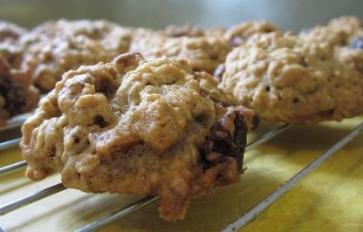
Going plant-based, increasing your exercise, and cutting back on red meat can all be positive changes to your lifestyle, but for some of us, those same choices can result in anemia.
If you’re currently feeling fatigued, tired, short of breath, dizzy, and are prone to cold hands and feet, you might consider getting a blood test. Anemia is a blood disorder, and a relatively common one for many populations, including athletes. Additionally, menstruating or pregnant women and people with chronic medical conditions are often at an even higher risk for anemia. The cause of most cases is iron deficiency, which is what this article will focus on.
If you think you may be anemic or, at least, low in iron, it’s worth taking a look at your diet and potential supplements. Here’s what to know and what to do about it.
1. What are you eating?
While it might be tempting to go straight to the supplement route if you’re worried about a potential iron deficiency, the body typically absorbs iron from whole food sources best—which means that taking a look at what you’re eating is often your best bet. While red meat, like steak or bison, might not be a possible choice for vegans and vegetarians, incorporating it one to two times per week into your diet can have immediate impact. Other great choices include the
following:
- Beets
- Red cabbage
- Spinach
- Watercress
- Beets
- Eggs
- Blackstrap molasses
- Parsley
- Lentils
2. How are you exercising?
While it might seem like all exercise is equal when we’re talking about intensity, certain activities can put you at higher risk for iron-deficiency. Running, and long-distance running especially, can put athletes at risk of anemia due to foot strike hemolysis, a process by which red blood cells are lost from repetitive ground contact. As this study shows, the more you run, the likelier you are to lose more red blood cells.
If you’re female, your likelihood of developing anemia or being iron deficient is significantly higher, thanks to the loss of iron during menstruation, as well as the higher required daily intake as compared to males. Unfortunately, even an absence or reduction of exercise can still mean anemia for those who frequently skip meals, make poor meal choices, and experience stress, as this study from the Pakistan Journal of Medical Sciences concluded.
Both males and females are equally impacted, however, by sweat. If you find yourself sweating excessively from exercise, or hot and humid conditions, you could also be at risk.
While running and sweating are both beneficial (and, for the latter, necessary) activities, to ensure you’re not deficient, try loading up on the foods mentioned above, or supplementing after getting your blood checked by a health care professional.
3. How are you supplementing?
- After getting your iron levels checked and learning you’re iron deficient, it might be tempting to down the first iron supplement you find, but be careful! For one, iron poisoning can happen, so be sure to take the correct amount for your body. Secondly, not all iron is absorbed the same. Look to follow the guidelines below when supplementing to ensure you’re ingesting exactly what you need, and nothing you don’t.
- Look for liquid brands, which often cause less constipation than tablet forms. Both vegetarian and vegan formulas are available.
- In order to ensure that your iron is absorbed, don’t take a calcium supplement within an hour of taking an iron supplement. However, taking vitamin C, whether through fruit like strawberries or oranges, or through tablet form, can increase absorption, so be mindful of pairing the two together during meals.
4. Are you vegetarian or vegan?
Plant-based eaters alike often tire of being told that their diet lacks in certain minerals and vitamins, and while partially true, it’s better to be on the safe side and supplement as needed. Heme sources of iron come from animals and animal products, and they are more easily absorbed into our body; non-heme
sources come from plants, and are not as well absorbed. Assuch, vegans especially should take care to eat as many iron-rich food sources as possible and to watch for symptoms of iron deficiency.








